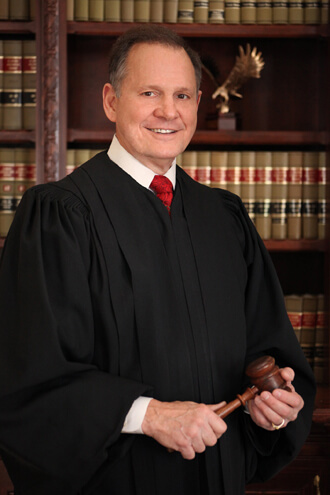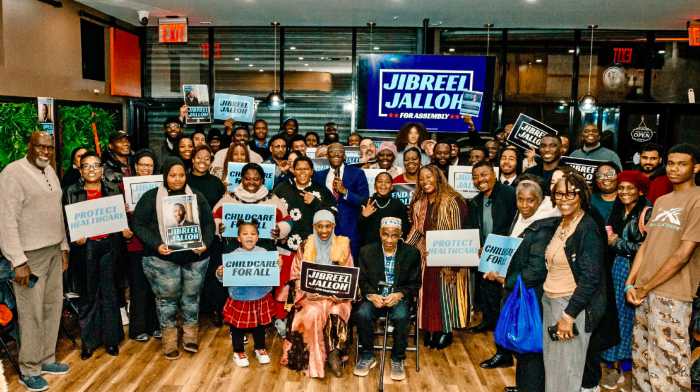In a surprising move that in effect tosses the hot potato into the hands of the Supreme Court, the 11th Circuit Court of Appeals, issuing a terse order on December 3, denied the State of Florida’s motion to extend a stay on an August district court marriage equality ruling while it considers an appeal.
In the absence of the nation’s highest court extending that stay, then, marriage by same-sex couples will become legal in Florida on January 6.
Ruling August 21 in two gay marriage lawsuits, US District Judge Robert Hinkle found that Florida’s ban on same-sex marriage was unconstitutional, but he stayed his order until January 5 to give the state a chance to appeal to the 11th Circuit. If the state wanted a longer stay while the 11th Circuit considered an appeal, it would have to ask that court for the extension, Hinkle ruled.
Will the Supreme Court let marriages go forward on January 6?
This week, a three-judge 11th Circuit panel denied the state any longer stay, meaning marriages would begin even as the appeals process continues to unfold.
The 11th Circuit panel is implicitly signaling that the balancing of factors normally considered in deciding whether to stay a decision pending appeal does not support the state’s posture in the case. The first and most important of those factors is whether the state is likely to prevail in its appeal. Other factors include the harms to both sides and to the public interest in granting or denying the stay and whether any of those harms are irreparable. The December 3 action is a strong indication by the 11th Circuit about how they think a ruling on the merits of the state’s appeal would turn out.
This could, however, also be a high-stakes game of chicken being played by the 11th Circuit panel. On October 6, the Supreme Court declined to take up appeals of marriage equality rulings from the Fourth, Seventh, and 10th Circuits and has since refused to issue stays of plaintiff victories in states from those circuits. Right after the high court’s action, the Ninth Circuit also issued a pro-equality ruling. The result of these appellate rulings coupled with the Supreme Court’s decisions not to intervene has expanded the marriage equality map from 19 states to 35 in the past two months.
The high court is now facing appeals of adverse rulings from the Sixth Circuit and from a district court in Louisiana. Prior to its October 6 action in declining review of appellate rulings in three circuits, the high court had issued stays of favorable district court rulings that were under appeal. The question, now, is whether the Supreme Court will continue that practice and grant Florida a longer stay or, in light of the national momentum in the past several months and its October 6 decision, shift course and deny the state any more time as it pursues an appeal. If the high court chooses the latter, it could be showing its hand on how it would decide either a Sixth Circuit or a Louisiana appeal.
The next two months are critical in determining the national campaign for marriage equality’s timing. Four days after the Florida stay is currently slated to expire, the Fifth Circuit, on January 9, is scheduled to hear oral arguments in appeals of marriage equality victories in Texas –– and perhaps Mississippi as well –– and in an appeal of the loss in Louisiana.
Between now and the end of January, the Supreme Court is likely to take up in conference one or more among the appeals from the plaintiffs in the Sixth Circuit cases –– from Ohio, Michigan, Tennessee, and Kentucky –– as well as a petition filed by Lambda Legal on behalf of the Louisiana plaintiffs (who also have an appeal pending before the Fifth Circuit Court of Appeals). (Editor's note: An earlier version of this story included published speculation about the timing of the Supreme Court's conference consideration of the marriage appeals that Gay City News has since learned has not been confirmed by the court.) If the high court takes up one of those cases, a key question is whether arguments can be scheduled and a decision reached by the end of the term in June –– or if the case is put off until the fall of 2015.
Should the Supreme Court delay the matter until the next term, a final resolution of the marriage equality question would realistically not come until early 2016. In either event, an announcement by the high court that it will hear an appeal would likely stall any further actions by appeals courts in circuits where the question has not yet been decided –– the Fifth, the 11th, the Eighth, where there have recently been gay marriage victories in Missouri and Arkansas, and the First, where an adverse ruling in Puerto Rico is being appealed.
If the Supreme Court refuses to stay the Florida ruling –– Republican Attorney General Pam Bondi will almost certainly seek an extension –– that would send a clear signal to the district judges in Alabama and Georgia who have marriage cases before them that if they rule in favor of plaintiffs, there is no need to stay their rulings since the 11th Circuit and the Supreme Court are unlikely to do so. That scenario would be ironic, with marriage equality spreading throughout the circuit without any ruling from an appeals court known for its conservatism.















